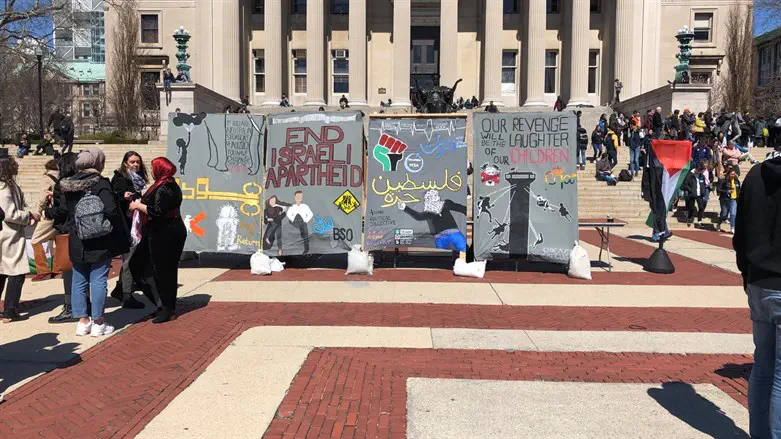
A new report by the Jewish People Policy Institute (JPPI), written by Dr. Shlomo Fischer and Dr. Rachel Fischer, presents a grim picture of the atmosphere on U.S. and European campuses in the aftermath of the October 7th massacre.
The most striking statistic: 96% of participants reported experiencing harassment, intimidation, or violence, solely because they are Jewish or because of their support for Israel. About 28% of them stated that they feel personally insecure on campus, and many reported distancing themselves from non-Jewish friends, partners, and colleagues.
The report indicates a profound shift in the identity of young Jews, particularly those who identify with progressive and liberal values. While in the past, they saw themselves as an integral part of the left-wing social coalition supporting human rights, social justice, and pluralism, today they are marginalized, depicted as "privileged oppressors" due to their connection to Zionism and Israel.
The testimonies in the report describe a daily reality of self-censorship, fear, and confusion. "I think twice about whether to wear a Star of David or a Jewish organization shirt," said a student from New York. Many participants in the study reported feelings of betrayal from their former partners in social justice struggles.
Alongside this, about 65% of respondents indicated that Israel is a "very central" part of their Jewish identity, while only 8.5% said it is "not central at all." Many emphasized that it is possible to be both a supporter of Israel and critical of its government’s policies. "We were only shown the ideal image of Israel," one participant said. "We were taught to ignore the complexities and the conflict."
The report warns that the gap between liberal identity perceptions and national affiliation threatens the cohesion of Jewish students. It suggests developing new educational approaches that would allow teenagers and students to form a complex Jewish identity—critical but stable.
The recommendations include strengthening the teaching of Zionism and the Arab-Israeli conflict in Jewish educational frameworks, alongside transparency in funding sources of anti-Israel movements, especially when funded by foreign entities. The report also suggests taking action to protect pluralism in academia and Jewish communities themselves.
Professor Yedidya Stern, president of the institute, said, "This is a sobering and disturbing document. Progressive activism today sees Jews as a privileged and oppressive group, and this has already surpassed the boundaries of the campuses. This is a challenge that requires us, as a people and as a community, to confront the new reality with courage and sensitivity."
